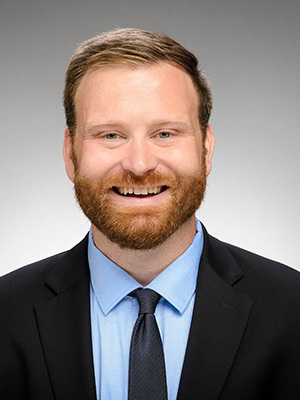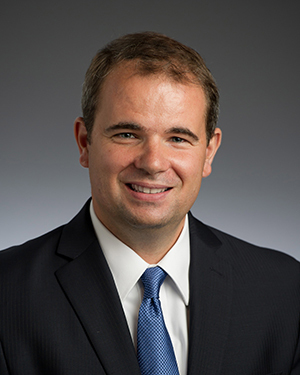Many consumers make unhealthy choices, but ‘uptrend messaging’ can help drive healthy behavior
Good nutrition and regular exercise can help prevent disease, but substantial evidence shows that only a minority of consumers adequately engage in these and other recommended healthy behaviors. In fact, according to the Centers for Disease Control, only 10 percent of Americans eat enough vegetables, 13 percent get enough fruit and 24 percent exercise adequately.
As a result, many healthy behaviors are what experts would consider “descriptively non-normative,” meaning most people don’t follow the recommendations by engaging in them.

In an effort to help marketers design messages to encourage healthy choices, new research from the University of Notre Dame introduces “uptrend messaging.” Rather than focusing on the fact that most consumers don’t follow the recommendations, it instead emphasizes the positive — that the percentage engaging in healthy behaviors is increasing.
“The Uptrend Effect: Encouraging Healthy Behaviors Through Greater Inferred Normativity” is forthcoming in the Journal of Marketing Research from John Costello and Frank Germann, marketing professors in Notre Dame’s Mendoza College of Business, along with Aaron Garvey from the University of Kentucky and James Wilkie, a senior data scientist at Fetch Rewards Inc.
The study states, “A key challenge to developing effective messages that encourage proper diet or exercise is rooted in the unpopularity of these behaviors. And when only a minority of people engage in a health-protective behavior, social marketers cannot truthfully use traditional descriptive normative messaging strategies highlighting that the majority of people engage in that behavior.”
Past research has shown that directly pointing out the unpopularity of a behavior tends to discourage engagement.
“By highlighting the positive, uptrend messaging allows consumers to infer the popularity of that behavior on their own, leading them to believe it is more popular than they otherwise would,” Costello said. “This shift in perceptions leads to greater engagement in the behavior.”

Across seven experimental studies, the team aimed to address the “unhealthy behavior is in the majority” quandary and discovered that uptrend messaging leads people to choose vegetables over crackers for a snack or to take a free apple when offered.
They also test the uptrend effect against existing social norm messaging approaches available to managers and policymakers.
“In both a controlled experiment and a field study conducted using Facebook advertising, we find that uptrend messaging outperforms other norm-based approaches,” Costello said. “Taken together, uptrend messaging offers a novel way to shift perceptions of descriptively non-normative behaviors and a practical tool social marketers and policymakers can use to address important societal issues.”
The team observed consumption behavior on a Notre Dame Football Friday and conducted controlled experiments both online and in behavioral labs at Notre Dame and the University of Kentucky. Across all studies, they found uptrend messaging drives healthy behavior and outperforms the other messaging approaches they tested.
The study shows that social marketers can positively influence healthy behaviors without deceiving consumers or providing inaccurate information.
“Our work provides policymakers and social marketers with an actionable and easy-to-implement messaging strategy that highlights truthful, but unexpected trend information around healthy behaviors,” Costello said. “We find that uptrend messaging can be used to encourage healthy behaviors that improve consumer quality of life.”
Contact: John Costello, 574-631-5171, jcostel4@nd.edu; Frank Germann, 574-631-4858, fgermann@nd.edu
Latest Faculty & Staff
- In memoriam: Alasdair MacIntyre, the Rev. John A. O’Brien senior research professor of philosophy emeritusAlasdair MacIntyre, the Rev. John A. O’Brien senior research professor of philosophy emeritus and a permanent senior distinguished research fellow at the de Nicola Center for Ethics and Culture, died on May 21, 2025. He was 96.
- Santiago Schnell, dean of Notre Dame’s College of Science, appointed as provost of DartmouthSantiago Schnell, the William K. Warren Foundation Dean of the College of Science at the University of Notre Dame, has accepted an appointment as provost at Dartmouth College. He will depart Notre Dame at the end of June and begin his new role in July.
- Notre Dame’s Fightin’ Irish Battalion receives Department of Defense award as nation’s top Army ROTC programThe United States Department of Defense honored the University of Notre Dame’s Army ROTC Fightin’ Irish Battalion as the nation’s top Army collegiate program for the 2023-24 academic year. This will be the first time the unit has received the department’s Educational Institution Partnership Excellence Award, which recognizes the program’s achievements in recruiting, educating, training and commissioning leaders of character to be the next generation of military officers.
- In memoriam: Karl Ameriks, the McMahon-Hank Professor of Philosophy EmeritusKarl Ameriks, the McMahon-Hank Professor of Philosophy Emeritus at the University of Notre Dame, died on April 28 from pancreatic cancer. He was 77. Born in post-World War II Germany, Ameriks’ family emigrated to the United States when he was a child, and he grew up in Detroit, Michigan. He received his bachelor’s and doctoral degrees from Yale University. He came to the Department of Philosophy at Notre Dame in 1973 during a formative time for the department, which had transitioned from a predominantly Thomist focus to the more analytical American philosophy in the 1960s.
- Notre Dame psychologist explores how children best learn math — and yes, timed practice helpsUniversity of Notre Dame professor of psychology Nicole McNeil recently co-authored a report that examines the best way for children to learn arithmetic — whether that’s by memorizing number values and multiplication tables, or by studying math at a deeper, conceptual level. The report, “What the Science of Learning Teaches Us About Arithmetic Fluency,” was published in the journal Psychological Science in the Public Interest and shows that children learn most effectively when instruction follows an evidence‑based cycle: grounding facts in conceptual understanding, using brief timed practice to make those facts automatic, and then returning to discussion and reflection to deepen that knowledge.
- ’Tis the season for ticks and mosquitoes. A medical entomologist talks about these pests and how to avoid them.Notre Dame expert Lee Haines explains the risks mosquitoes and ticks pose to the Midwest and discusses how the public can best protect themselves and family members (including pets) from these bloodthirsty pests.












